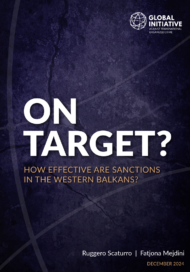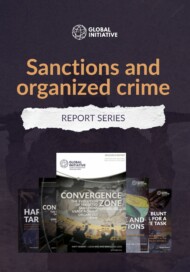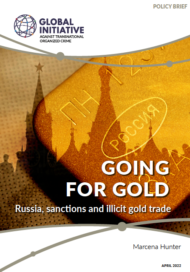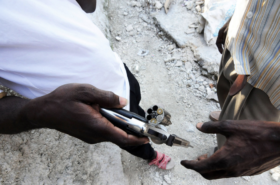Event Details
Where
Zoom Webinar
Posted on 16 Dec 2024
Click here to access the Database
Sanctions have long been used as a tool to combat organized crime and political corruption in the Western Balkans. But how effective are they in disrupting criminal networks and promoting accountability? Our latest report takes a closer look at the impact of sanctions imposed over the past decade in the region, revealing both successes and limitations.
The study highlights how sanctions have influenced individuals, business networks, and political landscapes in Albania, Bosnia and Herzegovina, Kosovo, Montenegro, North Macedonia, and Serbia. Financial sanctions from the US and UK have constrained prominent figures like Milorad Dodik in Bosnia and Herzegovina, whose access to financial services has been severely restricted. However, similar sanctions in Serbia and Kosovo have yielded mixed results, with businesses tied to sanctioned individuals continuing to secure state contracts worth millions.
Public reactions also diverge. In some areas, sanctions stigmatize individuals and force them into political isolation. In others, they are framed as resistance to Western interference, enabling sanctioned figures to gain prominence rather than being sidelined. In Serbia, for example, individuals under sanctions have been appointed to senior government roles, raising concerns about the effectiveness of external punitive measures in politically complex environments.
The report also reveals the uneven geographical application of sanctions, with Bosnia and Herzegovina and Serbia receiving the highest number of designations. Allegations of corruption, organized crime, and political destabilization dominate the list of offenses. Despite international efforts, the complex political, ethnic, and economic realities in the Western Balkans often limit sanctions’ intended outcomes.
Looking ahead, the report suggests that sanctions must be integrated into broader policy frameworks that combine legal reforms, diplomatic pressure, and stronger regional cooperation. Enhancing transparency and ensuring consistent enforcement could improve sanctions’ impact, making them a more effective tool for fighting corruption and promoting stability in the region.




